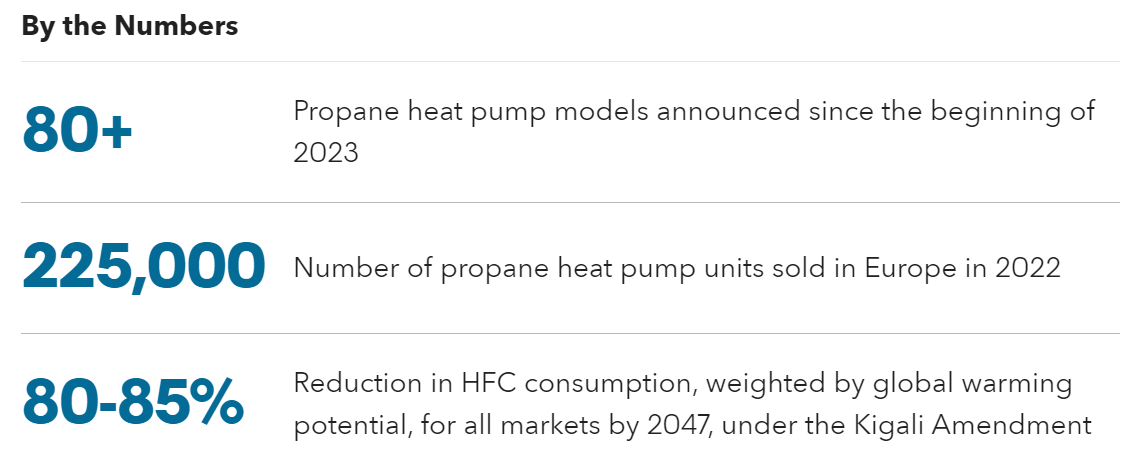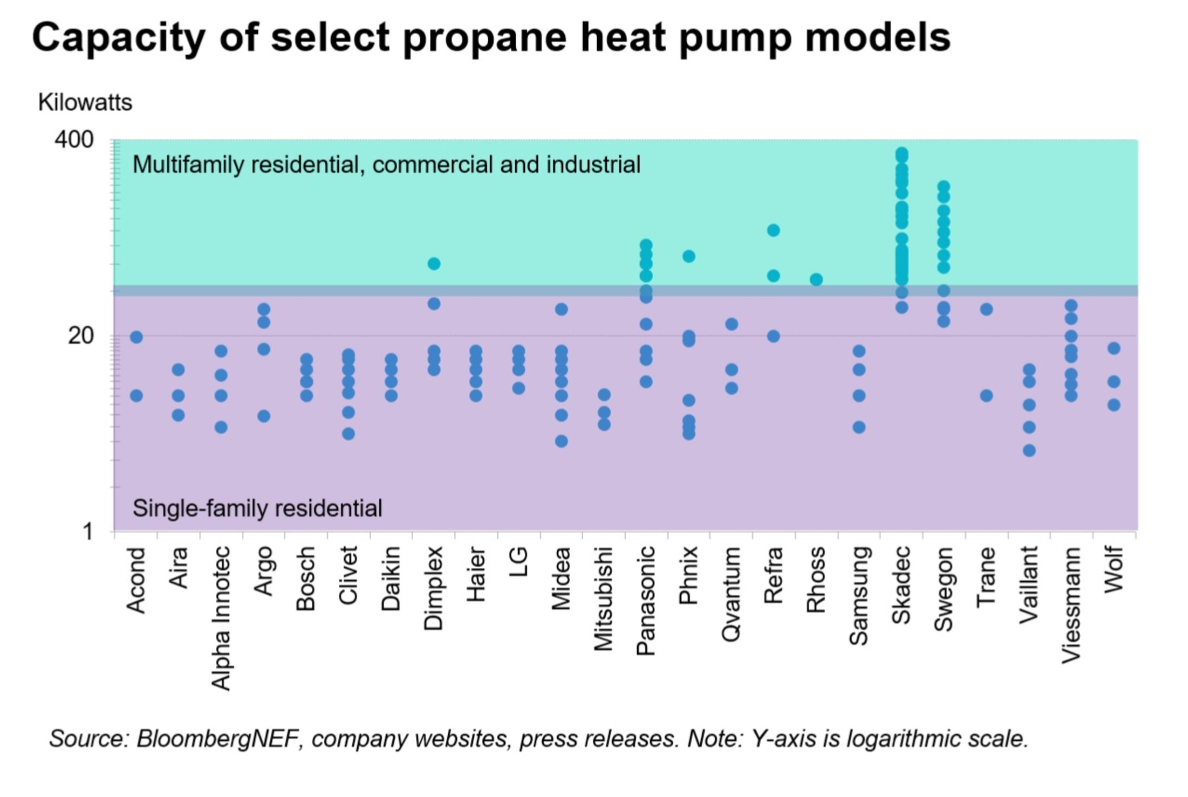By Stephanie Diaz, Technology & Innovation Analyst, BloombergNEF
Heat pumps that use propane as a refrigerant are gaining market share. As hydrofluorocarbons, a class of chemicals that are good refrigerants but also potent greenhouse gases, are phased down globally, propane heat pumps are carving out a space in the residential heat pump market. Europe is leading in the adoption of propane refrigerants, while the US market is hindered by safety codes and standards.


- Heat pumps are essential in decarbonizing the heating and cooling of indoor spaces. In 2023, spending on the technology reached $63 billion globally. The refrigerants used in heat pumps, however, are extremely potent greenhouse gases, and refrigerant leakage accounts for 31% of GHG emissions associated with space cooling. To mitigate these impacts, the Kigali Amendment to the Montreal Protocol establishes a phasedown of hydrofluorocarbons.
- In light of this treaty, propane heat pumps are gaining market share for residential heating and cooling. Propane is a good refrigerant, and propane heat pump performance is comparable to that of hydrofluorocarbon (HFC) equivalents. Heating, ventilation and air conditioning (HVAC) manufacturers including Panasonic, Viessmann, Bosch and Aira collectively announced more than 60 propane heat pump models in 2023 and over 20 so far this year.
- Earlier this year, the European Union legislated a ban of HFCs for certain heat pump types and sizes. In response, European HVAC manufacturers have been actively moving towards propane heat pumps, and in 2022, 8% of heat pump sales in the region were models that used natural refrigerants such as propane. In contrast, propane heat pumps are not commercially available in the US as safety codes and standards have not been updated. Amending these codes could take years, delaying US adoption of these heat pumps.
- The high upfront cost of heat pumps is a barrier to adoption. Experts that spoke with BNEF disagree on whether propane heat pumps will be more or less expensive than their HFC counterparts. Their ability to deliver higher output temperatures could, however, lower the costs of insulation and other upgrades required for the retrofit, lowering installation costs.
BNEF clients can access the full report here.